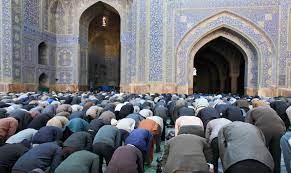Ramadan is a holy month observed by Muslims worldwide, during which fasting from dawn till dusk is obligatory. It is considered a time of spiritual reflection, worship, and increased devotion. The dates for Ramadan change every year, as they follow the Islamic lunar calendar, which is 11 days shorter than the Gregorian calendar. In this article, we will discuss the dates for Ramadan in 2023, and everything you need to know about this sacred month.
What are the Ramadan Dates for 2023?
Ramadan is expected to begin on the evening of April 2, 2023, and end on the evening of May 1, 2023. These dates are tentative and are subject to change depending on the sighting of the moon. The beginning and end of Ramadan are determined by the sighting of the crescent moon, which marks the start of the new lunar month.
As mentioned earlier, the Islamic calendar is lunar, and it is based on the phases of the moon. Each lunar month is either 29 or 30 days long, depending on the sighting of the new crescent moon. The lunar year is 11 days shorter than the solar year, which means that the dates for Ramadan shift by approximately 11 days every year.
The start of Ramadan is determined by the sighting of the new crescent moon. Islamic countries and Muslim communities around the world rely on local sightings of the moon to determine the start of Ramadan. If the new moon is sighted on the 29th day of the previous lunar month, then the next day is considered the first day of Ramadan.
Ramadan is a blessed month, and it is considered a time of increased spirituality and closeness to Allah. Fasting during this month is one of the five pillars of Islam and is mandatory for all healthy, adult Muslims. The virtues of Ramadan include:
- Increased rewards for good deeds
- Increased forgiveness and mercy from Allah
- Increased spiritual awareness and devotion
- The opportunity to break bad habits and develop good ones
- The chance to strengthen family and community bonds
During Ramadan, Muslims are required to fast from dawn till dusk, which means refraining from food, drink, and other physical needs. Muslims are also encouraged to increase their prayers and engage in charitable acts during this month. It is customary to break the fast with dates and water, as this was the practice of Prophet Muhammad (PBUH). The month of Ramadan concludes with the festival of Eid al-Fitr, which is a celebration of the end of fasting.
Observing Ramadan can be challenging, especially for those who are fasting for the first time or have health issues. Here are some tips for observing Ramadan:
- Start preparing for Ramadan a few weeks in advance by gradually reducing your food intake and increasing your water intake.
- Wake up early for Suhoor, the pre-dawn meal, as it will help you sustain energy throughout the day.
- Avoid strenuous physical activity during the day, as it can cause dehydration and exhaustion.
- Break your fast with dates and water, followed by a light meal, as it will help you replenish your energy levels.
- Engage in charitable acts and increase your prayers during Ramadan to gain maximum rewards and blessings.




